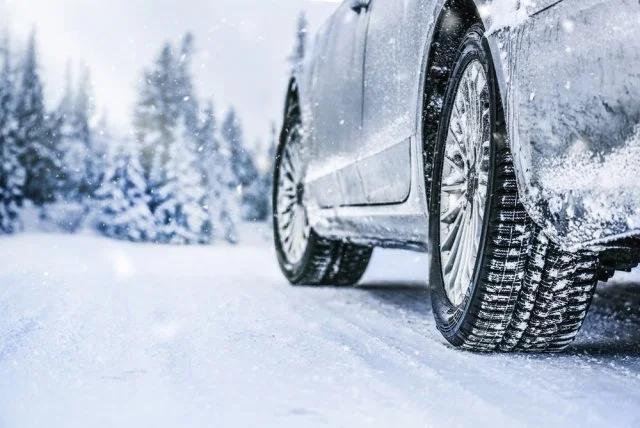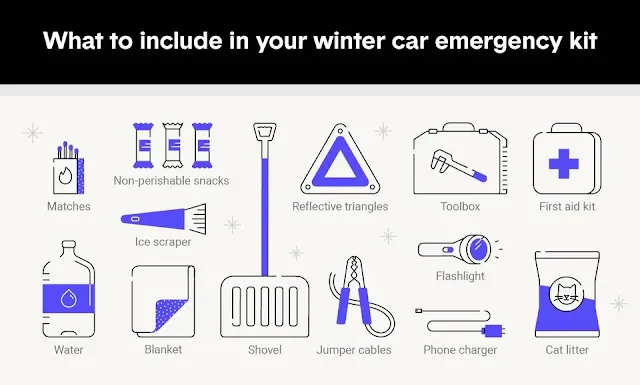As winter blankets the world in a layer of frost, your vehicle requires special attention to navigate the challenges of cold weather. In this comprehensive guide, we delve into 20 essential winter car care tips, ensuring your vehicle remains reliable, safe, and ready to conquer the icy roads and freezing temperatures that winter brings.
1. Check Tires for Winter Traction
Embark on winter preparedness by focusing on your tires. Adequate tread depth is crucial for traction on slippery surfaces. Consider investing in winter tires designed to provide enhanced grip in snow and ice, ensuring your vehicle stays firmly planted on the road.
2. Test and Maintain the Battery
Winter temperatures can be harsh on your car battery. Begin the season by testing its charge and inspecting for secure mounting. Consider utilizing a battery warmer or a maintenance kit to prevent unexpected battery failures, especially during the coldest days.
3. Use Winter-Grade Engine Oil
Adapt your vehicle to colder temperatures by switching to winter-grade engine oil. This specialized oil maintains its fluidity in the cold, providing superior lubrication and protection to your engine during the winter months.
4. Check Antifreeze Levels
Guard your engine against freezing temperatures by verifying the levels of antifreeze (coolant). A proper mixture of coolant and water ensures that your engine stays operational even in the coldest conditions, preventing potential damage.
5. Inspect the Heating System
Ensure a warm and comfortable ride by checking the functionality of your heating system. Test the heater, defroster, and thermostat to guarantee that your vehicle keeps you warm and provides clear visibility throughout the winter.
6. Test the Defrosters and Wipers
Optimize your winter driving experience by ensuring your defrosters and wiper blades are in top condition. Replace worn-out wiper blades and verify that the defrosters effectively clear fogged or frosted windows, enhancing safety in adverse winter weather.
7. Keep Fuel Levels High
Maintain a higher level of fuel in your tank during winter. This practice prevents the formation of condensation in the fuel lines, reducing the risk of freezing and ensuring that your vehicle is well-fueled for any unexpected delays caused by winter weather.
8. Carry a Winter Emergency Kit
Equip your vehicle with a comprehensive winter emergency kit. This kit should include blankets, extra warm clothing, a flashlight, non-perishable snacks, and a first aid kit, ensuring you're well-prepared for any unexpected challenges that winter roads may present.
Related : 24 Summer Car Care Maintenance Tips
9. Wax and Protect the Exterior
Shield your vehicle from winter elements by applying a protective wax coating. This layer acts as a barrier, preventing salt and road chemicals from damaging the paint and ensuring your vehicle looks good while resisting corrosion.
10. Check Exterior Lights
With shorter winter days, proper lighting is crucial for visibility and safety. Regularly check that all exterior lights, including headlights, brake lights, and turn signals, are functional and provide clear illumination on dark, icy roads.
11. Inspect the Braking System
Winter demands a well-maintained braking system for safe driving. Schedule a brake inspection and consider replacing worn-out brake pads to ensure optimal braking performance on icy and snowy roads.
12. Keep an Eye on Tire Pressure
Cold temperatures can cause tire pressure to drop. Regularly check and maintain optimal tire pressure to ensure proper traction, handling, and fuel efficiency during winter drives, minimizing the risk of tire-related issues in cold weather.
13. Protect Interior Flooring
Preserve your car's interior by placing durable winter floor mats. These mats protect the flooring from snow, salt, and moisture, making it easier to clean and ensuring a more comfortable interior for your winter journeys.
14. Carry a Snow Brush and Ice Scraper
Be prepared for frosty mornings by carrying a reliable snow brush and ice scraper. Clearing snow and ice from your windows, lights, and mirrors is essential for safe winter driving, providing clear visibility.
15. Check Four-Wheel Drive (4WD) System
If your vehicle is equipped with a four-wheel-drive (4WD) system, ensure it's in proper working condition. Test its engagement and disengagement to enhance stability and control on slippery winter roads, providing you with added confidence during winter driving.
16. Inspect the Power Steering System
Don't overlook the power steering system in winter car care. Cold temperatures can affect its performance. Check for proper fluid levels and address any unusual noises or stiffness promptly, ensuring smooth steering even in freezing conditions.
17. Clean and Treat Leather Interiors
For vehicles with leather interiors, winter can be harsh. Clean and treat the leather surfaces with a high-quality conditioner to prevent drying and cracking. This not only maintains the aesthetic appeal but also enhances comfort during winter drives.
18. Test the Heater Core
Ensure your vehicle's heater core is functioning optimally by testing the heater. A well-functioning heater core is essential for maintaining a warm and comfortable cabin, especially during frigid winter temperatures.
19. Inspect the Exhaust System
The winter season often comes with salted roads, which can accelerate corrosion of the exhaust system. Regularly inspect the exhaust system for signs of rust and damage, ensuring it remains efficient and safe during winter drives.
20. Monitor Tire Alignment
Correct tire alignment is crucial for stable and predictable handling, especially on slippery winter roads. Schedule a professional wheel alignment to ensure your tires are aligned correctly, minimizing the risk of uneven wear and improving overall safety.
Conclusion
By incorporating these 20 essential winter car care tips into your routine, you're not just preparing your vehicle for the cold season; you're ensuring a safe, smooth, and comfortable drive through winter's challenges. Stay proactive, address issues promptly, and let your car navigate winter roads with confidence. Safe travels await as you embark on winter journeys, well-prepared for whatever the season brings.
Why is winter car care important?
Winter car care is crucial because cold temperatures, snow, and icy conditions can impact various components of your vehicle. Proper winter car care helps ensure safety, reliability, and optimal performance during the challenging winter months.
How often should I check my tire pressure during winter?
It's advisable to check tire pressure at least once a month during winter. Cold temperatures can cause tire pressure to drop, affecting traction and fuel efficiency.
Related : How to Apply Touch up Paint on a Car
Do I need winter tires if I have all-season tires?
While all-season tires provide decent performance in various conditions, winter tires are designed specifically for cold weather, snow, and ice. If you live in an area with harsh winters, investing in winter tires can significantly enhance your vehicle's winter performance.
How can I prevent my car battery from dying in the cold?
To prevent a dead battery in cold weather, ensure it's in good condition, securely mounted, and consider using a battery warmer or maintenance kit. Additionally, limit electrical accessory use when the engine is off.
Is it necessary to switch to winter-grade engine oil?
Yes, using winter-grade engine oil with lower viscosity is recommended for colder temperatures. It ensures better lubrication and protection for your engine during winter.
How can I improve visibility during winter driving?
To improve visibility, regularly check and replace worn-out wiper blades, use winter-grade windshield washer fluid, and ensure that all exterior lights are functional. Clear snow and ice from windows and mirrors before driving.
What should I include in a winter emergency kit?
A winter emergency kit should include blankets, extra warm clothing, a flashlight, non-perishable snacks, a first aid kit, a snow shovel, jumper cables, and basic tools. Be prepared for unexpected situations during winter travel.
Can I wash my car in winter?
Yes, washing your car in winter is essential to remove road salt and prevent corrosion. Choose a car wash with an undercarriage spray to remove salt from the vehicle's underside.
How often should I change my windshield wiper blades?
Replace windshield wiper blades every six months to a year or sooner if you notice streaking or reduced effectiveness, especially crucial during winter when visibility is essential.
Should I warm up my car before driving in winter?
Modern cars do not require extensive warming up. Idling for a minute or two is sufficient. However, drive gently until the engine reaches optimal operating temperature.
How can I protect my car's exterior from winter elements?
Apply a protective wax coating to shield your car's exterior from salt and road chemicals. Regularly wash your car to remove salt buildup and consider parking in a garage when possible.
Can I use regular windshield washer fluid in winter?
It's recommended to use winter-grade windshield washer fluid with antifreeze properties during cold weather. This prevents the fluid from freezing and ensures clear visibility.
How do I prevent frozen door locks?
To prevent frozen door locks, consider applying a silicone-based lubricant to the locks. Alternatively, keep a de-icer spray handy to thaw frozen locks.
Should I store my car with a full or empty gas tank in winter?
Keep your gas tank at least half full during winter. This prevents condensation from forming in the tank and reduces the risk of fuel line freezing.
How do I prepare my car for winter storage?
Before winter storage, clean your car thoroughly, change the oil, inflate the tires, and consider using a fuel stabilizer. Store your vehicle in a dry, cool place with a full tank of gas.
Tags:
Automotive


